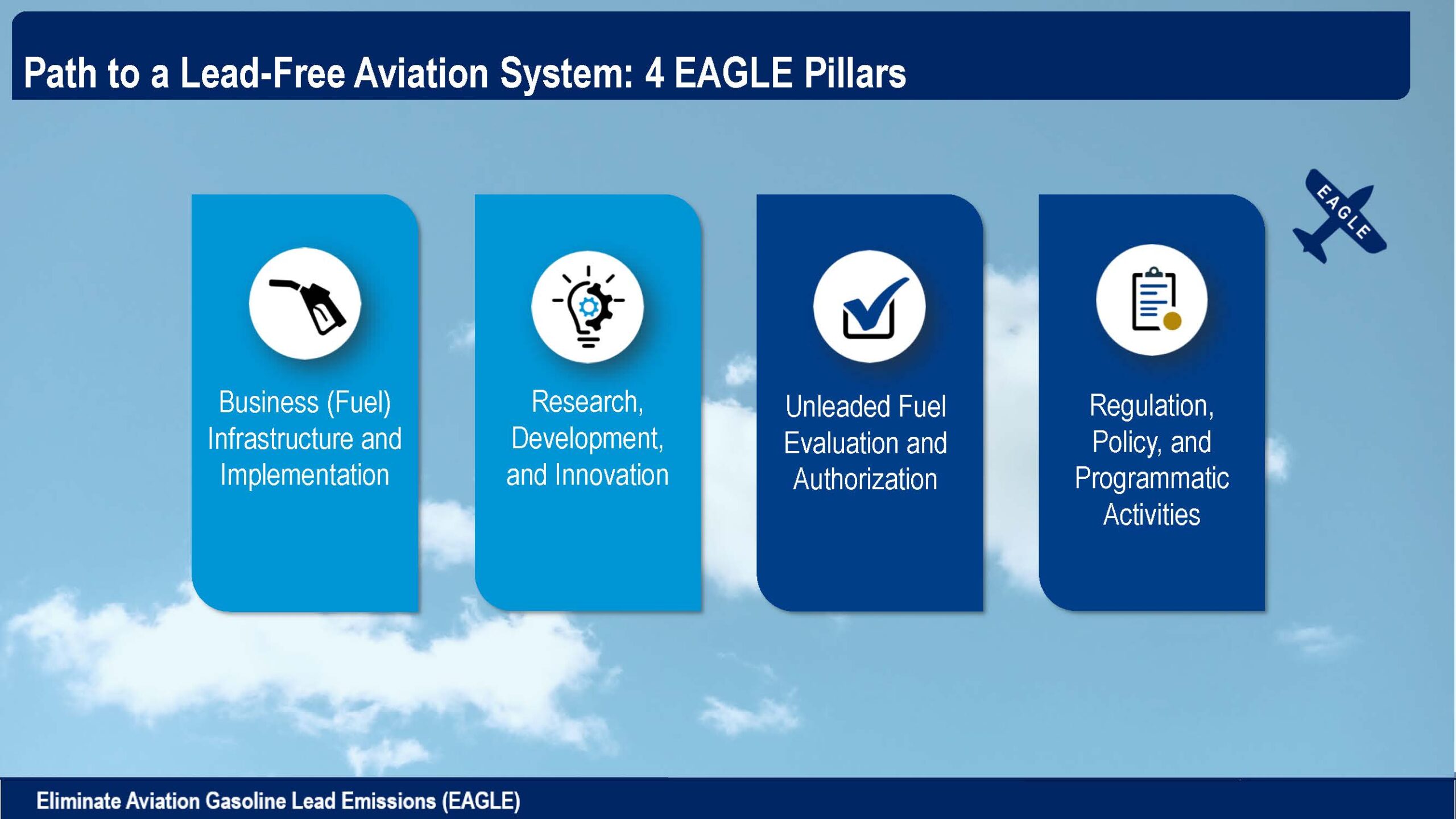Leaders of aviation and petroleum groups have committed to an initiative laying out a clear plan to transition piston-engine aircraft to lead-free aviation fuels by the end of 2030 – the Eliminate Aviation Gasoline Lead Emissions (EAGLE) initiative. EAGLE calls for an industry and government partnership to expand and accelerate the actions and policies necessary for a viable high-octane unleaded replacement for the current 100 octane low-lead aviation gasoline (100LL), without compromising the existing U.S. transportation infrastructure system, aviation safety, and the economic and broader public benefits of general aviation.
The FAA hosted an industry stakeholder roundtable meeting in November 2021 to discuss a strategic plan toward an unleaded avgas future, culminating in the establishment of the EAGLE initiative, which is structured around four key pillars – Regulatory and Policy, Unleaded Fuel Testing and Qualification, Research and Development, and Business Infrastructure and Implementation. These activities, which will require full government support, provide the foundation toward safe unleaded aviation fuels for piston-engine aircraft. Industry stakeholders and the FAA will begin working on the EAGLE initiative right away with a partnership symposium, to define a detailed workplan, planned for March. Groups committed to the EAGLE initiative include NATA (National Air Transportation Association), Aircraft Owners and Pilots Association (AOPA), American Association of Airport Executives (AAAE), American Petroleum Institute (API), Experimental Aircraft Association (EAA), General Aviation Manufacturers Association (GAMA), Helicopter Association International (HAI), and National Business Aviation Association (NBAA).
National Air Transportation Association President and CEO Curt Castagna stated, “Even though 2030 is the target to achieve a fleet authorization, lead-free alternative to 100LL, we hope to obtain that goal much sooner with industry and government working together,” added Castagna. “As we collectively move toward a scalable solution, NATA and our members are continuing to demonstrate leadership in keeping a safety first focus on infrastructure support, as well as on the development of resources and training for airports, FBOs, and other refueling operators.”
Eliminate Aviation Gasoline Lead Emissions (EAGLE) Initiative Website
